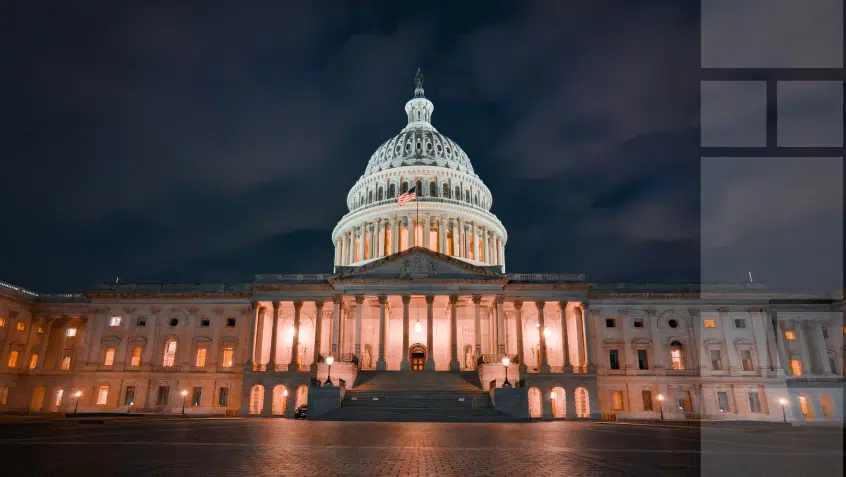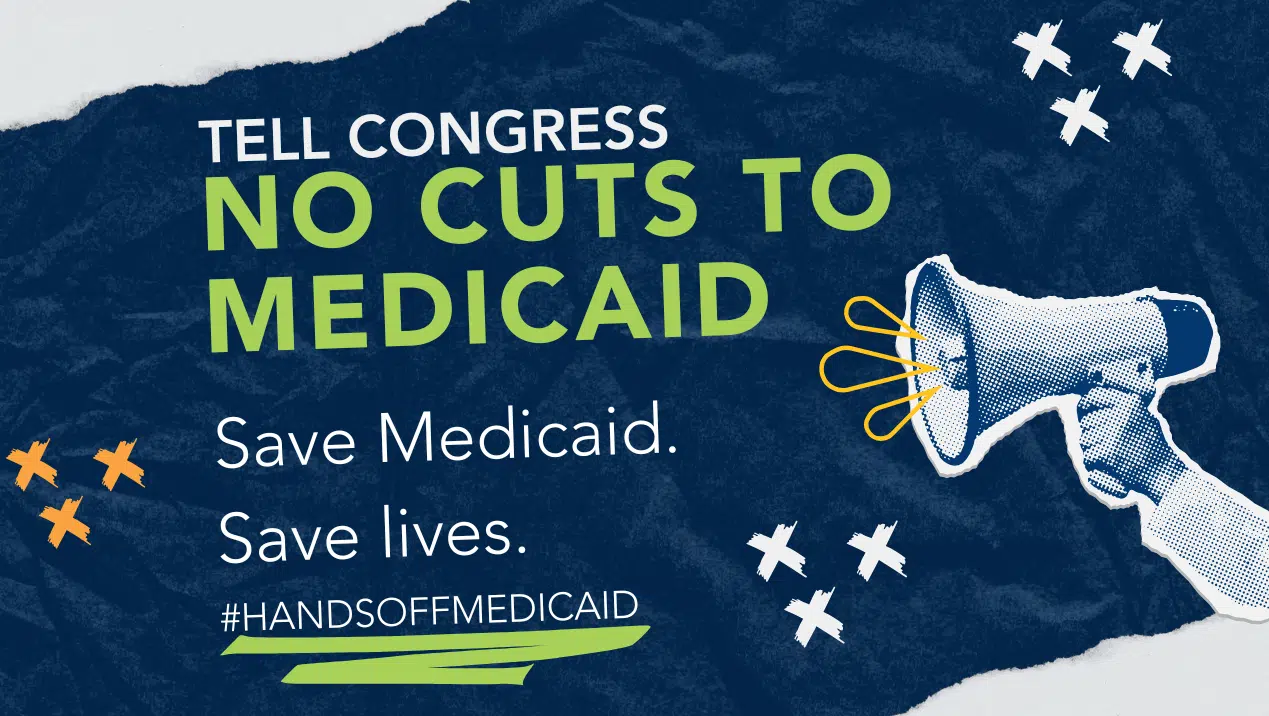The Medicare Interactive website just got an upgrade. Take a look today!
Senate Reconciliation Bill Would Increase Financial Hardships for Medicare Enrollees

This week, as Senate Republicans continued to finalize their budget reconciliation bill, new KFF analysis underscores the harms it could cause older adults and people with disabilities.
KFF finds the bills would likely increase the financial burden associated with paying for Medicare Part B. In 2024, one in ten (12% or 7.4 million) Medicare beneficiaries spent more than 10% of their annual income on Part B premiums. This means they lived on $21,000 or less, based on the 2024 Part B premium amounts ($174.70/month).
Part B Costs Especially Burdensome for Lower-Income Beneficiaries
Because the Medicare Savings Programs (MSPs) help cover Part B premiums and other costs, like deductibles and cost sharing, the financial burden for lower-income beneficiaries who are not enrolled in an MSP is particularly heavy. The upper income limit for MSP eligibility in 2024 was around $20,600 in most states. Some of the 7.4 million may not have qualified—they may have had income just above the eligibility cutoff or savings that made them ineligible for assistance. Some, though, may have been eligible but were not enrolled either because they didn’t know about the program or because signing up and keeping an MSP is administratively onerous.
By halting the rules designed to streamline these processes, the House and Senate reconciliation bills would cause more low-income people to lose MSP access and have trouble paying for Medicare.
By halting the rules designed to streamline these processes, the House and Senate reconciliation bills would cause more low-income people to lose MSP access and have trouble paying for Medicare. The Congressional Budget Office (CBO) projects nearly 1.4 million low-income people with Medicare—more than 10% of the dually enrolled Medicare-Medicaid population—would lose their MSP coverage due to the rollback of these simplifications. It is important to note that the streamlining rules do not change the MSP eligibility criteria – people would lose benefits solely because the application and re-certification processes would become more difficult to navigate.
Republican Bills Would Save Federal Dollars by Reducing MSP Enrollment
Low-income beneficiaries who lose MSP would face significant costs as a result, both overall and as a share of their income. For example, the streamlining rules would automatically enroll people receiving Supplemental Security Income (SSI) into an MSP. People with SSI receive a maximum benefit of $967—reduced by any other income received in the month—and cannot have more than $2,000 in savings. The MSP into which they would be automatically enrolled under the rule, Qualified Medicare Beneficiary (QMB), has income and asset limits well above those amounts: $1,325 in non-work income and over $9,000 in savings. Despite their clear compliance with MSP eligibility rules, the Republican reconciliation bills would make people with SSI separately apply for the program, using the savings that would accrue when some of them fail to do so to pay for tax cuts that disproportionately benefit high income earners.
Despite their clear compliance with MSP eligibility rules, the Republican reconciliation bills would make people with SSI separately apply for the program.
But people with Medicare would pay the price. Without QMB, in 2025 SSI enrollees would pay about 20% of their monthly income to cover their Part B premium ($185). These financial burdens would grow with time, as annual Medicare Part B premiums are projected to reach nearly $2,500 in 2026 and more than $4,000 by 2034.
At the same time, other Medicare expenses would eat up even more of limited beneficiary budgets. For example, if these SSI enrollees paid the full annual Part A and Part B deductibles next year ($1,676 and $257, which would have been covered by QMB) their coverage costs would consume at least one-third of their annual SSI allocation. And because MSP enrollees automatically get the Part D Low Income Subsidy (LIS)/Extra Help, which helps pay for Medicare prescription drug coverage, they’d be on the hook for those costs too. The Social Security Administration estimates LIS saves enrollees about $6,200 per year, a number that is likely to rise as drug prices do.
Out-of-Pocket Costs Drive Access to Care Down, With Fatal and Financial Consequences
Research consistently finds that people facing higher out-of-pocket costs for health care cut back on the care they receive, even if it is necessary for their health and safety. This leads to worse health, higher care needs, and more hospitalization—effects that drive up costs for individuals and system-wide. Losing Medicare cost assistance is also likely to increase mortality among low-income beneficiaries. The House bill’s streamlining rule delay “could result in 18,200 additional deaths among Medicare enrollees every year” primarily because “losing Medicaid also leads to the loss of prescription drug assistance through the Low-Income Subsidy (LIS) program.” The Senate bill goes further, prohibiting the implementation of the rule permanently.
Combined, LIS and MSPs make health care costs more manageable, allowing enrollees to maintain Medicare coverage, fill prescriptions, and afford basic needs like food and housing. Preventing more people from accessing the assistance for which they qualify will ensure that fewer people can use the Medicare coverage to which they are entitled. We urge Congress to reject the budget reconciliation bills and instead work together to improve the health and economic security of all Americans.
Preventing more people from accessing the assistance for which they qualify will ensure that fewer people can use the Medicare coverage to which they are entitled.
Take Action! Congress Aiming for Passage by July 4
Despite the clear evidence that their bill will harm millions, Senate Republicans are not slowing down. They plan to vote as soon as this week. Since both chambers must pass an identical bill for it to become law, the House would then vote again. That could happen quickly, as Republicans are eyeing a July 4 deadline for final passage.
This rushed schedule means now is the time to go all in with your advocacy. Contact your lawmakers, activate your networks, attend events where your lawmakers will be present, and engage your local media. Weigh in today!
Read the KFF report, Seven Million People with Medicare Spend More Than 10% of Income on Part B Premiums – The Reconciliation Bill Could Drive the Number Higher
Show Comments
Help Us Protect & Strengthen Medicare.
Donate today and make a lasting impact.
The Latest
Most Read
Add Medicare to Your Inbox
Sign up to receive Medicare news, policy developments, and other useful updates from the Medicare Rights.
View this profile on InstagramMedicare Rights Center (@medicarerights) • Instagram photos and videos









One Comment on “Senate Reconciliation Bill Would Increase Financial Hardships for Medicare Enrollees”
Cynthia Rockwell
June 27, 2025 at 2:10 amTell you what it’s all a crock o was in the hospital for just a few days receiving iv fluids. I got down on the floor and was unable to get back up.etc… my hospital bill was $183,000.00. what afraid abuse of charges. I didn’t want the body CT scan, nor the head CT scan nor the cervical scan. I wasnt wanting it. the techs wouldn’t take no for a answer because the Dr ordered it.well I know my health conditions better then anyone. Instead of taking to the patient was me I was exposed to a lot of radiation I didn’t need. I’ve accumulated more then anyone should in just a few years. My mother had acute radiation poisoning from medical test. No she wasn’t near a nuclear reactor meltdown. We’ve been lied to as always. She was given a poor prognosis to survive and we were told she should be put in a nursing home til herpassing. Easy for them to say it wasn’t their mom.. those scans that I was forced to have cost almost 30,000 dollars. What a rip off. Big pharma a joke charging us in the USA get do. You want us the low income to starve. I quit going to Drs because that can’t be trusted. The government has given illegals health insurance at our cost. Those illegals have committed a FEDERAL crime coming into our country illegally. But their rewarded you give them room and board, food, phones and now health insurance. 50 years ago we who lived in the farming communities and worked the farmland because we enjoyed it.. we were kicked out of all the jobs we had done for years. Because they were given to those that crossed the border daily. I don’t call MAGA the way your doing we the disabled low income citizens. Becoming disabled wasn’t my choice. Do whatever you want screws us that’s how it works anymore. Health insurance who needs it we can’t afford to go to Drs as it is. But he why would anyone want to when Drs aren’t trust worthy. I’ll just suffer til I pass.